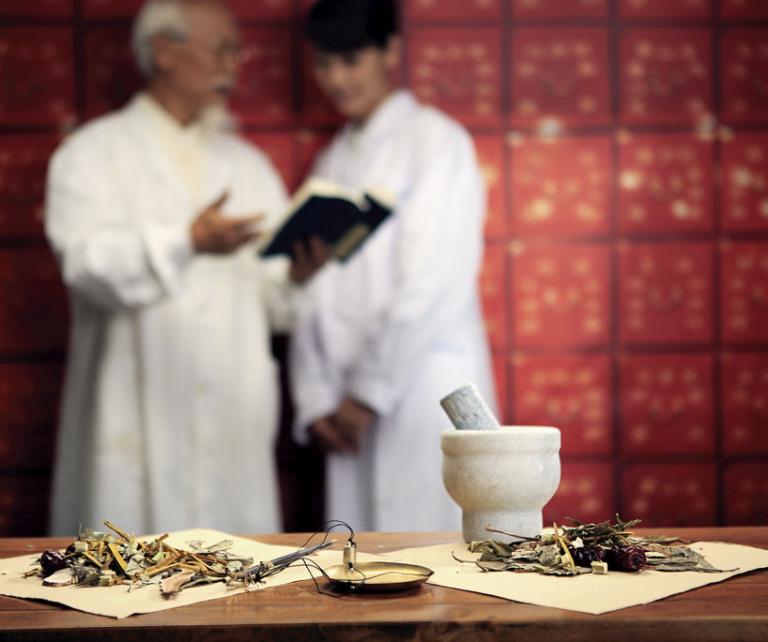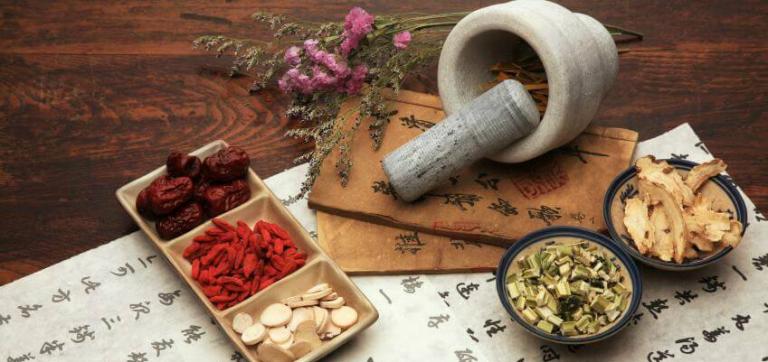TCM and the Confucian Concept of Ren
4 min readOne of the principal tenants of Confucianism is the concept of ren (benevolence). The concept of benevolence is central to Confucian culture, and has retained its great value through the present day. The essential meaning of benevolence is to love others.
First and foremost, people love their own families, only then expanding the scope of their love to the rest of the world. Benevolence calls for people to empathize with and be kind to one other, extending the concept of family to include all of humanity. It embodies both self-awareness and an understanding of human nature, as well as a deep spirit of humanitarianism. The essence of benevolent love is the recognition of the intrinsic worth of others, and the ability to see that they are really no different than oneself.

Mengzi: Liang Hui Wang Shang (Mengzi: King Liang Hui), by the great Confucian philosopher Mengzi (Mencius) (372-289 BC), tells a story about King Qi Xuan, a ruler of the State of Qi during the early Warring States Period (475-221 BC). The king encountered a cow that was about to be sacrificed. Seeing the animal trembling in fear, his heart was moved to pity and he issued an order sparing its life. In his commentary, Mengzi states that the king’s act exemplifies ren (benevolence).
The Confucian concept of benevolence had a deep influence on traditional Chinese medicine, and was instrumental to the formation of TCM’s unique system of medical ethics. TCM’s development of the concept served in turn to further enhance Confucian philosophy. Hua Tuo (c.? -208 AD) was an eminent Confucian physician of the Eastern Han Dynasty who was known as Divine Physician, or the “miracle worker.” The following couplet appears on the door of his temple: “The only benevolent healing art is that of the Yellow Emperor and Qi Bo; miracles of medicine were worked during the time of Hua Tuo.”
The ancient Chinese sages believed that the entire continuum of healing is an expression of ren (benevolence). The Confucian view of benevolence stresses self-cultivation to harmonize the individual and regulate the state, while TCM emphasizes treating disease to harmonize the body and save lives. “The average physician heals disease; the intermediate physician heals the people; the superior physician heals the state.” This emphasis on harmonizing the health of both the individual and society indicates that Confucianism and traditional Chinese medicine shared the same underlying values. Traditional Chinese medicine attaches great importance to personal and professional ethics.
Only people of the highest integrity and ability were considered qualified to practice medicine. Sun Simiao (581-682 AD), known as the Sage of Pharmacy, was an eminent physician who lived during the Tang Dynasty (618-907 AD). In his encyclopedic work Beiji Qianjin Yaofang (Prescriptions for Emergencies Worth a Thousand Pieces of Gold), Sun Simiao articulates the close correspondence between traditional Chinese medical ethics and the Confucian concept of benevolent love. His definitive emphasizes treating disease to harmonize the body and save lives. “The average physician heals disease; the intermediate physician heals the people; the superior physician heals the state.” This emphasis on harmonizing the health of both the individual and society indicates that Confucianism and traditional Chinese medicine shared the same underlying values. Traditional Chinese medicine attaches great importance to personal and professional ethics. Only people of the highest integrity and ability were considered qualified to practice medicine. Sun Simiao (581-682 AD), known as the Sage of Pharmacy, was an eminent physician who lived during the Tang Dynasty (618-907 AD). In his encyclopedic work Beiji Qianjin Yaofang (Prescriptions for Emergencies Worth a Thousand Pieces of Gold), Sun Simiao articulates the close correspondence between traditional Chinese medical ethics and the Confucian concept of benevolent love.
His definitive description of professional medical ethics states, “When physicians treat disease, they must be centered and compassionate, wholly committed to saving all people from suffering without thought of personal gain. They should regard all who come to them in need as members of their own family, whether they be rich or poor, young or old, beautiful or ugly, Chinese or foreign. Physicians must not hesitate to act, even if they fear for their own safety, but should respond to the pain of others as if it were their own. Neither danger nor depths of night, heat nor cold, hunger, thirst, nor fatigue shall prevent them from wholeheartedly helping others. Physicians must treat their patients with the highest integrity, the greatest sincerity, and the deepest compassion. Those who do not are no more than thieves.”









